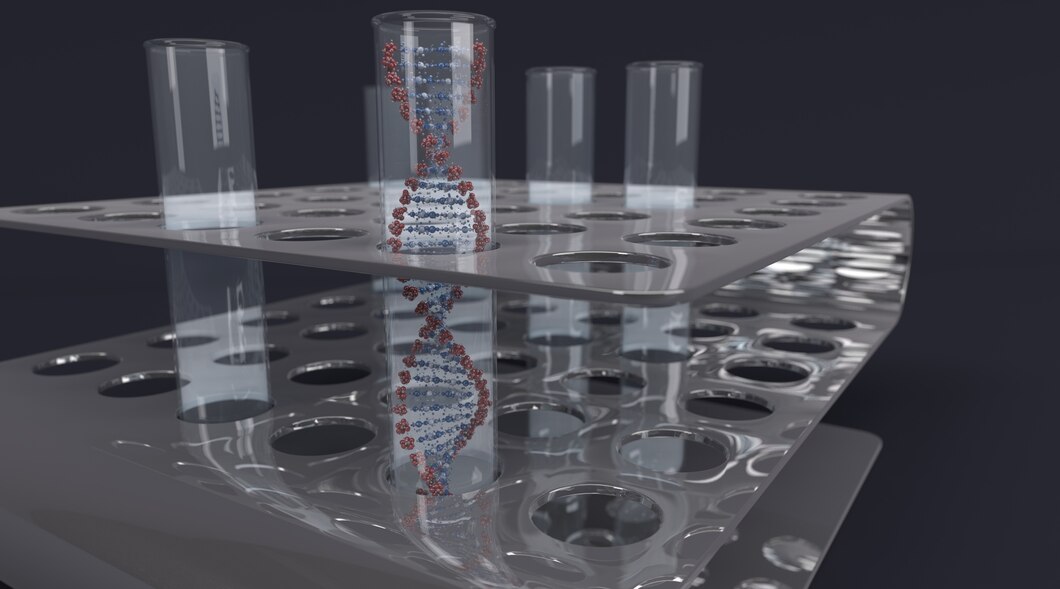As genetic engineering becomes one of the most dynamic fields in modern medicine, the development of personalized medicine is revolutionizing healthcare services. This technology, which is used in everything from drug therapies to disease prevention, makes it possible to tailor treatment methods to individuals based on their genetic makeup. So, what is genetic engineering, how is it used in personalized medicine, and what does the future hold for us? In this article, we will examine these questions in detail and with a technical approach.
Introduction to Genetic Engineering
What is Genetic Engineering?
Genetic engineering is a branch of biotechnology that involves directly altering an organism’s genetic material (DNA). This technique is used to modify the characteristics of organisms by adding, removing, or changing specific genes within the DNA. This process is carried out by manipulating the DNA, which is the carrier of genetic information. Genetic engineering is used in various fields, including agriculture, drug development, and healthcare.
CRISPR-Cas9 Technology
One of the most revolutionary technologies in genetic engineering is CRISPR-Cas9. CRISPR-Cas9 is a method that targets and cuts DNA sequences, allowing those sequences to be edited. This technology enables the precise addition or removal of genes by creating breaks in specific locations within the genetic material. The accuracy and effectiveness provided by CRISPR-Cas9 have facilitated groundbreaking steps in personalized medicine.

Personalized Medicine: The Future of Healthcare
What is Personalized Medicine?
Personalized medicine involves treating diseases by considering an individual’s genetic structure, environmental factors, and lifestyle. This approach aims to create tailored treatment plans based on the patient’s unique biological makeup rather than applying the same treatment to everyone, resulting in more effective and safer outcomes.
Genomic Information and Treatment
Genomic information forms the foundation of personalized medicine. The genome contains all of an organism’s genetic information, and studying this data allows for predictions about a person’s susceptibility to diseases, their reactions to certain medications, and numerous other medical parameters. For example, targeted therapies used in cancer treatment work by addressing specific genetic changes in the patient’s tumor tissue.
Pharmacogenomics
Pharmacogenomics refers to the personalization of drug treatments based on an individual’s genetic makeup. This field seeks to predict how drugs will be metabolized and which treatments will yield the best response, based on genetic characteristics. For instance, some people may metabolize certain drugs quickly, while others may do so slowly. This difference can be explained by genetic variations, and in personalized medicine, the dose or type of medication is determined accordingly.

Applications of Genetic Engineering in Personalized Medicine
Cancer Treatment
One of the most effective areas of personalized medicine is in cancer treatment. Traditional chemotherapy kills both cancerous and healthy cells, leading to serious side effects for patients. However, with the help of genetic engineering, the genetic profile of cancer cells can be identified, and targeted therapies specific to those cells can be developed. In this way, only cancerous cells are destroyed, while healthy cells are spared. For example, drugs have been developed to target specific genetic mutations, such as those in HER2-positive breast cancer.
Treatment of Genetic Diseases
Genetic engineering holds great potential for treating inherited diseases. Genetic disorders like sickle cell anemia and cystic fibrosis are caused by specific genetic mutations. Technologies such as CRISPR-Cas9 can correct these faulty genes, enabling treatment for these diseases. Such applications are made possible by directly altering the genes responsible for the disease.
Personalized Vaccines
Traditional vaccines are designed to provide collective immunity against diseases, but not every individual responds to them in the same way. Personalized vaccines, developed using genetic engineering, can be designed using genetic information about an individual’s immune system. In this way, vaccines tailored to a person’s genetic makeup can be produced, yielding stronger and more effective immune responses.

Advantages and Challenges of Genetic Engineering in Personalized Medicine
Advantages
- Treatment Effectiveness: Genetic engineering increases the effectiveness of personalized medicine by allowing patients to respond better to treatment. Since drugs are tailored to each individual’s biological makeup, side effects are reduced, and the duration of treatment is shortened.
- Preventive Medicine: Genetic tests can predict which diseases a person is likely to develop in the future. Preventive treatment strategies can then be developed based on this information. For instance, mutations in the BRCA1 and BRCA2 genes increase the risk of breast cancer. Early diagnosis and preventive surgery can be recommended for individuals with such mutations.
- Targeted Treatments: In complex diseases like cancer, the genetic profile of a patient’s tumor can be identified using genetic engineering, and treatments tailored to this profile can be developed. This allows for more specific and effective treatment methods to be used instead of general therapies like chemotherapy.
Challenges
- Ethical Issues: The ability of genetic engineering to alter the human genome raises various ethical concerns. Technologies like CRISPR-Cas9, which can modify genetic makeup, have led to ethically questionable scenarios, such as the potential for ‘designer babies.’ This raises serious ethical debates about the purposes for which human genomes should be altered.
- High Costs: Personalized medicine can be an expensive field due to the advanced genetic tests and biotechnological methods it requires. This can make personalized treatments difficult for widespread access. The advanced technology required for these treatments may also place an additional financial burden on healthcare systems.
- Data Security: Genetic information constitutes the most sensitive part of personal health data. The risk of misuse of this information raises significant concerns regarding personal data security. Strict regulations are needed regarding the storage, sharing, and use of genetic test results.
The Future of Personalized Medicine and Genetic Engineering
New Treatment Methods
In the future, it is expected that genetic engineering and personalized medicine will become more widespread. New treatment methods will not only focus on genetic structure but also on other biological data, such as environmental factors and the microbiome. Neurological diseases and slowing the aging process are likely to be major areas of research in the future of genetic engineering.
Ethical Rules for Genome Editing
As genome editing technologies continue to develop, ethical aspects of genetic engineering will likely become even more controversial. Discussions on how far we should go in editing the human genome are expected to intensify, and strict ethical guidelines will be essential in determining the limits of genome editing.

